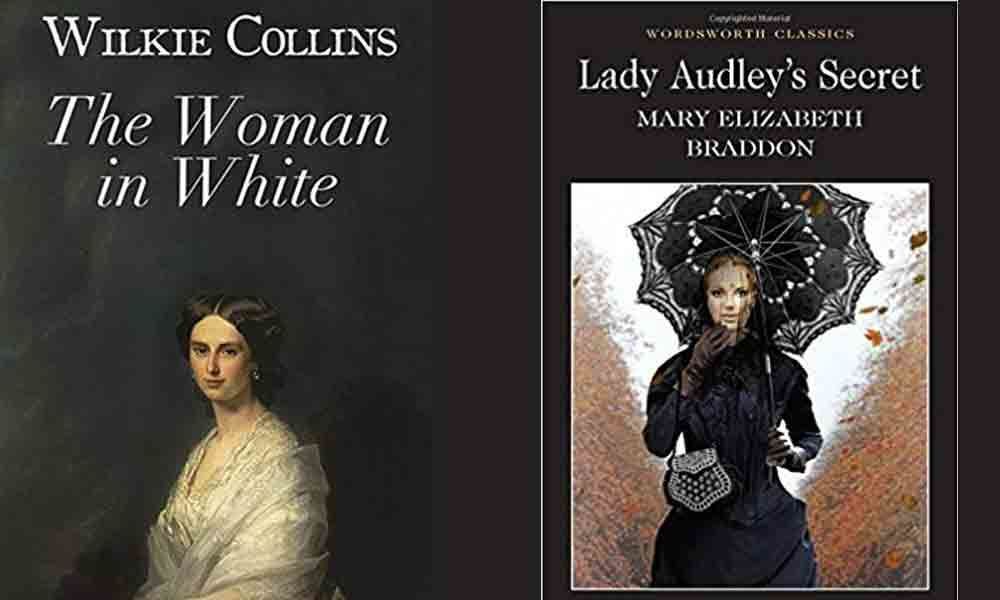No spoilers please!
We think that fear of spoilers is the by-product of social media. But no! It dates back to the 19th century. From people bashing up a person, who spoilt a film for them, to taking revenge on someone by spoiling key scenes for that person; the whole fad has gained a new momentum… Here, we are gauging what makes spoilers one of the most feared things on the internet…
In a world that runs on digital media, we are not strangers to the term 'spoiler alert'. What makes spoilers one of the most feared things on the internet these days is that they are literally everywhere. From 'Star Wars' to 'Avengers', 'The Big Bang Theory' to 'Game of Thrones', the web is plagued with a plethora of spoilers about things one might vehemently not want to know.
We are often witnessing creators, studios and artists going to extreme lengths to keep a tight wrap on their work. One of the best examples for this is Marvel's social media campaign, #DontSpoilTheEndGame in which the Russos addressed their fan base in a letter asking them not to reveal anything about the film. The letter concludes with a witty line that says, "Remember, Thanos still demands your silence."
What exactly counts as a spoiler?
Finding out that Bruce Willis' character in 'The Sixth Sense' is dead for most of the movie is probably the most cited example. It is a major spoiler and ruins the experience of the movie. On the other hand, finding out that Cersei Lannister dies at the end of 'Game of Thrones' is not much of a spoiler because it was already highly anticipated. The simple answer to this question would be, to each his own. Each individual has a unique rate of tolerance when it comes to these things.
When did spoilers & their fear first come into existence?
This spoiler culture may seem like it is a distinctive by-product of social media. However, that is not the case. They are, in fact, issues that originated with the media of the 19th century. The Victorians wouldn't have called them "spoilers", but they were often as conscious as we are that the joys of watching or reading fiction can depend on not knowing what's to come.
The Woman in White
The novelist Wilkie Collins had always been eclipsed by Charles Dickens, his friend and colleague, until 'The Woman in White' began to be published as a serial from November 1859. The novel, an exhilarating mixture of intrigue, madness and crime, was not only "sensational" in terms of its contents, but also in its public reception. Having been released in weekly instalments for more than 10 months, 'The Woman in White' was eventually published in a collected, three-volume format in 1860. To the critics who would soon review the book, Collins cautioned against revealing its plot: "If he (the critic) tells it at all, in any way whatsoever, is he doing a service to the reader, by destroying, beforehand, two main elements in the attraction of all stories – the interest of curiosity, and the excitement of surprise?"
Surprisingly, most critics accepted it. The Examiner, a weekly periodical, struggled not to divulge anything, but fully admitted that giving hints of the plot would impair its interest in readers that were yet to make its acquaintance". Meanwhile, even though another paper, the Saturday Review, disliked the novel, their reviewer thought it would be "unfair to the story" to reveal details. So, the critic came to a compromise: "We hope there is no objection to an occasional hint, a dark allusion, to this mystery of mysteries that this series is." It's not quite what we might consider a "spoiler-free" review today, but this was new territory for the Victorian reviewers and their readers.
The first spoiler?
Other authors followed the example Collins set. Mary Elizabeth Braddon, for example, had found huge success with her 1862 novel 'Lady Audley's Secret', which revolved around mistaken identities and past crimes. She knew that much of the power of her follow-up novel, 'Henry Dunbar', could be spoiled if reviewers gave away a "secret" that occurs in the final pages – she, therefore, asked them "not to describe the plot".
But critics gave a mixed response this time. Many questioned whether a novel that could be spoiled was worth reading and if revealing details in this way really did have a negative effect on the reading experience. The Examiner asked how a novel's plot is "to be at the same time concealed and criticised?"
In any case, they went on to say, readers could easily guess the secret of Henry Dunbar before it was disclosed. So, what was the fuss?
The Times went even further: the pleasures of these novels don't depend on "ignorance" of their endings, the reviewer said, and readers were just as content to see how their plots unfolded.
Nevertheless, Collins and Braddon seem to have won out. An 1871 contributor to the Saturday Review confessed that although they found suspense unpleasant, they were not "the majority of novel-readers", for whom the "anxiety to discover the end" was a valued aspect of fiction.
Fifteen years later, we find arguably the first mention of a "spoiler" in print. The Graphic, a weekly illustrated newspaper, began its evaluation of the (deliciously titled) novel 'Doable Cunning' with the following remark: "We shall avoid spoiling the effect by giving the least hint of its plot, the interest of which depends altogether upon the reader's coming to it with complete freshness and openness of mind."
Are spoilers bad?
The general notion is that they are. As stakes seem higher today, when billions of dollars are invested in certain entertainment franchises, and series can unfold over many years, it is comforting to find that modern audience are far from alone in thinking that the enjoyment of fiction can depend on not knowing everything in advance.
Paul Bloom, a professor in Psychology from Yale, points out in his book 'How Pleasure Works', that it is puzzling how we choose to spend time exploring fictional worlds whether it is by reading, watching TV and movies or playing video games rather than engaging in real-world activities. Bloom argues that, on some level, we don't distinguish fact from fiction. There's research to back this up: For example, a study found that people refuse to eat a piece of fudge shaped to look like faeces, even though they know it's just fudge. Appearance and reality get blurred. Studies show that this blurring actually happens at the neurological level: The conscious parts of our brain tell us that a story isn't real, but the more primitive parts tell us it is. This research suggests one explanation for why spoilers suck.
Of course, not everyone shares the same opinion. Jonathan D Leavitt and Nicholas JS Christenfeld published a paper in 2011, on a study they conducted where they found that people who heard the "spoiled" version of a short story liked it more than those who heard the "unspoiled" version. However, the study overlooked a key fact: People only care about spoilers for stories they feel invested in, not those they've heard for the first time a minute earlier.
Some spoiler defenders make more theoretical arguments, such as Time's TV critic James Poniewozik, who wrote, "An unwanted spoiler does take something away, but not, I think, the pleasure of actually reading or watching a story. Rather, it takes away from the anticipation before watching it—wondering who dies, whether they'll get off the Island."
In most cases though, taking away the anticipation does take away the pleasure of a story. There's plenty of research showing that people enjoy the anticipation of something pleasurable just as much, if not more than they enjoy the thing itself. It is, therefore, safe to state that the passionate dislike for spoilers is rightly warranted.



















